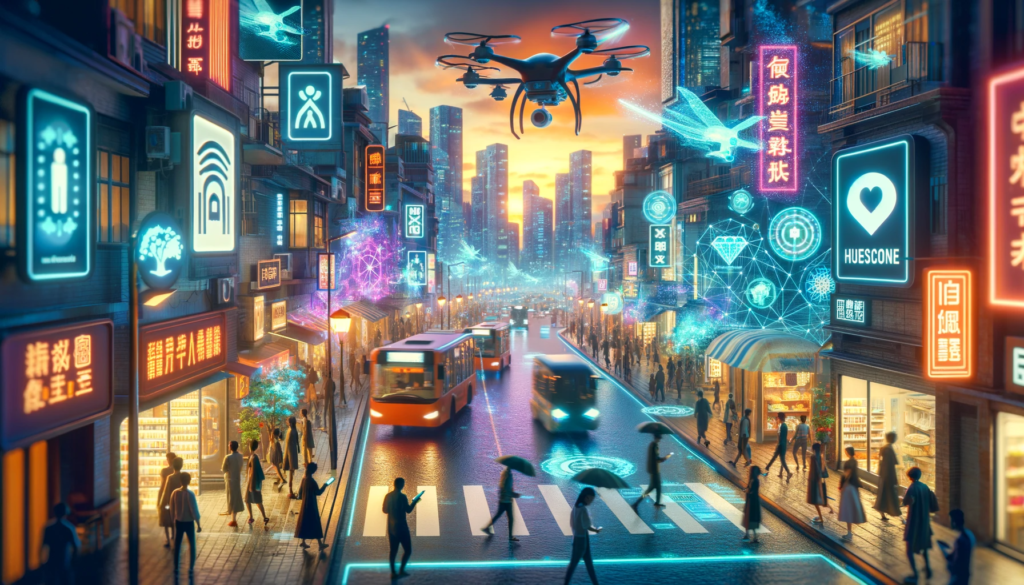In the realm of technological innovation, the adoption of artificial intelligence (AI) has been a significant milestone, marking a new era in how businesses, governments, and individuals operate and interact. While giants like OpenAI and Google have been at the forefront of AI development for years, the COVID-19 pandemic emerged as an unexpected catalyst, accelerating the integration and acceptance of AI technologies worldwide.
Pre-Pandemic AI Landscape
Before the pandemic struck, AI was already on a steady trajectory of growth and integration across various sectors. Companies were exploring AI for efficiency gains, innovation in product and service offerings, and achieving a competitive edge. However, the adoption rate varied significantly across industries, with many organizations still in the early stages of understanding and implementing AI solutions. The potential of AI was recognized but not fully realized or leveraged by many.
The Pandemic as a Catalyst for AI
The advent of COVID-19 brought about unprecedented challenges, forcing businesses and societies to adapt rapidly to a new normal. With lockdowns, social distancing, and a shift towards remote work, there was an urgent need to find solutions that could operate within these constraints while ensuring continuity and efficiency. According to a study by PwC, the crisis significantly accelerated the adoption of AI technologies as organizations sought innovative ways to navigate the pandemic’s complexities. This acceleration was not just a matter of necessity but also a reflection of the adaptability and resilience of AI technologies in addressing real-world problems on a global scale.
Expanding Horizons of AI Adoption
The pandemic underscored the versatility and efficiency of AI in various domains, from healthcare and education to supply chain management and customer service. In healthcare, AI-enabled tools played a crucial role in tracking the spread of the virus, predicting outbreaks, and facilitating research on treatments and vaccines. For businesses, AI became instrumental in adapting to changing consumer behaviors, enabling remote work, and enhancing online security as cyber threats increased with the shift to digital.
Furthermore, the pandemic led to a broader recognition of AI’s potential to drive significant social and economic benefits. Organizations that were once hesitant began to explore AI technologies, motivated by the need to innovate rapidly to survive. This shift has led to a more widespread understanding and acceptance of AI, laying the groundwork for more profound and accelerated future adoption.

The Role of Innovators
Companies like OpenAI and Google have been pivotal in pushing the boundaries of what AI can achieve. Their ongoing research and development efforts have not only advanced the capabilities of AI technologies but also demonstrated their potential to address complex global challenges. The pandemic period, in particular, saw these organizations leveraging their expertise to offer solutions and support to those impacted by COVID-19, further showcasing the societal benefits of AI.
Looking Forward
As the world gradually moves towards recovery, the role of AI in shaping the post-pandemic future cannot be overstated. The accelerated adoption of AI during the crisis has not only showcased its immediate benefits but also set the stage for sustained innovation and integration across all sectors. Organizations are now more open to exploring AI, driven by the experiences and lessons learned during the pandemic. The momentum gained in AI adoption is likely to continue, fueled by the ongoing efforts of innovators and the growing recognition of AI’s potential to address the challenges of tomorrow.
In conclusion, while OpenAI, Google, and other pioneers have been instrumental in developing AI technologies over the years, the COVID-19 pandemic served as a pivotal moment, significantly accelerating the adoption and acceptance of AI worldwide. This period of rapid adaptation and innovation has underscored the critical role of AI in navigating global challenges, setting a new precedent for how we leverage technology to enhance resilience, efficiency, and progress in the face of adversity.

So true and amazing that COVID 19 helped accelerate adoption
Yes its true that COVID resulted in the the adoption of AI by many companies that were affected by workers in the officespace